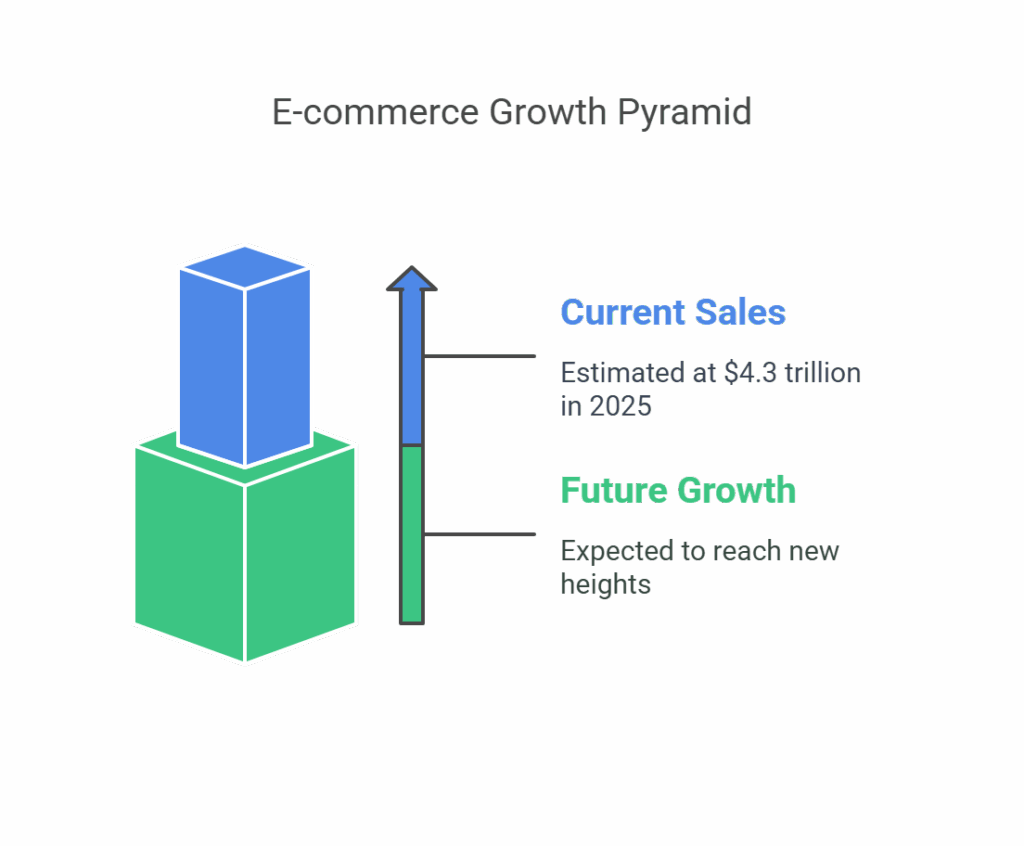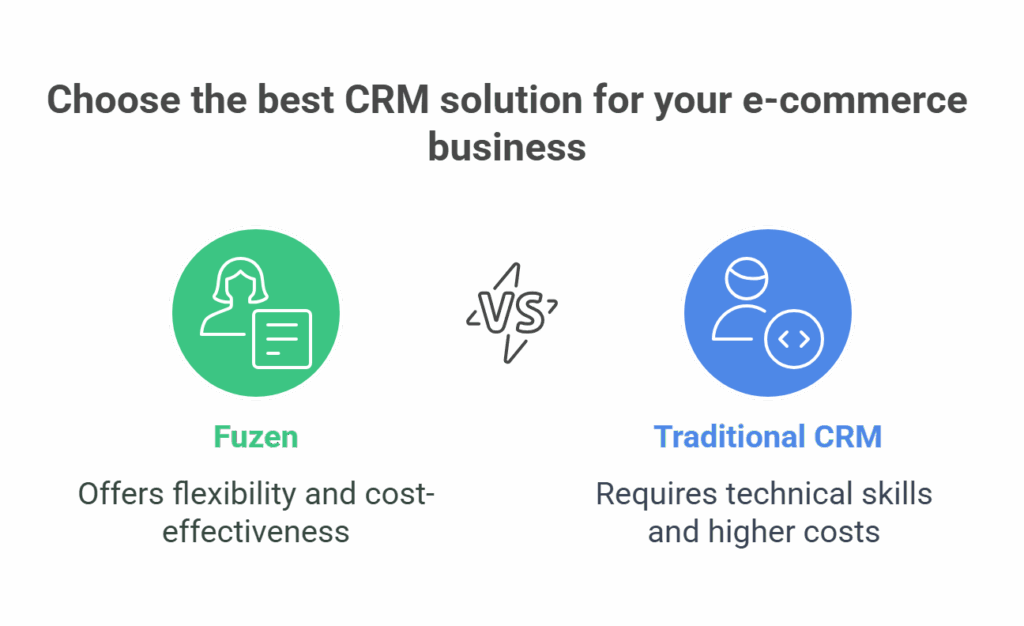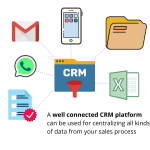Today, customer data privacy has become a critical concern for e-commerce businesses. As more consumers shop online, the volume of personal data shared with retailers continues to grow. Every transaction involves sensitive information that, if mishandled, can result in serious consequences for both consumers and businesses.
Hence, the importance of data privacy extends beyond customer satisfaction. It is also a legal obligation. Regulations such as the General Data Protection Regulation (GDPR) in the EU and the California Consumer Privacy Act (CCPA) in the U.S. set strict standards for data handling. Businesses must follow these rules carefully or risk facing severe penalties. For any company selling online, e-commerce GDPR compliance is a crucial component of responsible data management. It is not only about avoiding fines but also about creating a brand that customers feel safe engaging with.
This section will explore why data protection is more important than ever in e-commerce. You will learn about the risks of ignoring privacy laws and how businesses can use e-commerce GDPR compliance as a way to strengthen customer relationships and gain a competitive edge. Prioritizing privacy is now a necessity for lasting success in the online marketplace.
Understanding Data Protection Regulations: GDPR, CCPA, and Beyond
To effectively protect customer data, it’s important to understand the regulations that govern data privacy. These laws define how businesses should collect, store, and process personal information. They are designed to protect customer rights and ensure responsible data practices.
A. GDPR (General Data Protection Regulation) – Europe
Applies to any business handling data of EU residents (regardless of your location).
Major requirements:
- Tell users what data you collect and why.
- Get clear consent before collecting data.
- Let users access, correct, or delete their information any time.
Non-compliance? Expect hefty fines and potential reputational damage.
B. CCPA (California Consumer Privacy Act) – United States
Focuses on protecting California residents’ data.
Your responsibilities:
- Disclose what data you collect and how it’s used.
- Let users opt-out of data sales.
- Provide accessible privacy policies and user rights options.
Ignoring CCPA can lead to fines and loss of consumer trust.
C. Global Regulations (LGPD, PIPEDA, etc.)
- Brazil (LGPD), Canada (PIPEDA), and more countries are rolling out their own laws.
- Each has unique requirements—no one-size-fits-all solution.
- International e-commerce businesses must monitor and adapt to multiple regulations.
Best Practices for E-commerce GDPR Compliance
Achieving compliance with regulations like GDPR involves implementing several best practices that safeguard customer data and uphold privacy rights. These practices are not only essential for avoiding penalties but also for earning consumer trust. Let’s look at some critical elements to consider:
- Collect Only Necessary Data: Minimize the data you collect from your customers. The less data you have, the lower the risk. Opt for relevant information that improves the customer shopping experience without overstepping privacy boundaries.
- Secure Clear Consent: Before collecting any data, ensure you have permission. Use transparency in your privacy policies, stating clearly why and how data will be used. Having clear consent mechanisms can prevent misunderstandings and legal issues.
- Provide Easy Opt-Out Options: Give consumers control over their data. Provide simple ways for them to opt-out of data collection processes or marketing communications. This enhances user trust and ensures compliance with the "right to be forgotten" aspect of GDPR.
By adhering to these practices, e-commerce businesses can significantly enhance their data protection strategies. These efforts not only ensure compliance but also build stronger relationships with customers who feel secure in how their data is handled. Implementing these best practices can turn regulatory compliance into a business opportunity by creating a trustworthy brand.
Leveraging CRM Tools for Effective Data Management
A Customer Relationship Management (CRM) system can play a pivotal role in ensuring GDPR compliance for e-commerce businesses. CRMs are powerful tools that help manage customer data efficiently and securely. Let’s explore how these systems can aid in the compliance journey:
- Secure Data Storage: A robust CRM stores your customer data in centralized databases. This reduces the risk of data breaches and ensures that personal information is protected from unauthorized access, fulfilling one of GDPR’s key requirements.
- Efficient Consent Tracking: CRMs can record and track customer consent for data collection and usage. This way, businesses can maintain real-time records showing compliance with GDPR's consent requirements, simplifying audits and transparency efforts.
- Managing Data Deletion Requests: Under GDPR, customers have the "right to be forgotten." A CRM can automate and simplify the process of handling data deletion requests, ensuring customer data is erased correctly without manual errors.
Integrating these functionalities into your CRM system is crucial for ensuring a smooth compliance journey. By using CRM tools, businesses can maintain and improve data protection standards while continuing to offer personalized customer experiences. This technology simplifies GDPR compliance, allowing businesses to focus on growth while staying secure and compliant.
Building a GDPR-Friendly CRM with Fuzen
Fuzen makes it easy for e-commerce businesses to build GDPR-compliant CRM systems that are practical, flexible, and affordable. The platform is designed to simplify the entire process, from setup to daily use, while keeping your data secure and fully under your control.
With Fuzen, you don’t need to worry about complex coding or long development cycles. The built-in CRM builder helps you get started quickly, and if you prefer, you can use ready-made CRM templates to save even more time. Every element of your CRM is customizable, letting you adapt it to your exact needs. Whether you're handling sales, support, or marketing, you can customize your CRM to match your specific workflows.
Fuzen also helps with workflow management, making sure repetitive tasks like lead capture, follow-ups, and email sequences happen without manual effort. This not only improves efficiency but also keeps your team focused on growth instead of admin work. For businesses looking to streamline their lead management, Fuzen provides easy tools to track, score, and move leads through your pipeline with zero friction.
As a business solution, Fuzen stands out by offering custom cost development. You only pay for hosting, not for expensive licenses or ongoing subscription fees. That makes it especially ideal for small teams and startups that need full functionality without a large budget.
What makes Fuzen even more powerful is its integration of smart tools. You can build and modify your CRM using plain text prompts, thanks to Fuzen’s CRM with AI capabilities. This allows you to add features, automate tasks, or restructure your setup simply by describing what you need—no technical skills required.
By combining intuitive tools with powerful automation and cost flexibility, Fuzen offers everything you need to build a secure, tailored CRM that grows with your e-commerce business.
Conclusion
Protecting customer data in e-commerce has never been more important. By prioritizing privacy, understanding key regulations like GDPR and CCPA, and adopting best practices, your business can stay secure while building long-term customer trust.
CRM systems play a key role in streamlining data handling and ensuring compliance. With the right tools, managing personal data becomes more structured, transparent, and aligned with legal requirements.
Fuzen’s no-code platform stands out as a powerful solution for e-commerce GDPR compliance. It allows businesses to build fully customizable CRM systems without technical complexity or high development costs. With flexible templates, workflow automation, and full control over customer data, Fuzen helps businesses stay compliant while remaining agile.
By combining regulatory awareness with Fuzen’s innovative tools, you turn compliance into a growth opportunity. The result? A secure, trusted shopping experience that strengthens your brand and supports your long-term success.

Pushkar is a seasoned SaaS entrepreneur. A graduate from IIT Bombay, Pushkar has been building and scaling SaaS / micro SaaS ventures since early 2010s. When he witnesses the struggle of non technical micro SaaS entrepreneurs first hand, he decided to build Fuzen as a nocode solution to help these micro SaaS builders.




